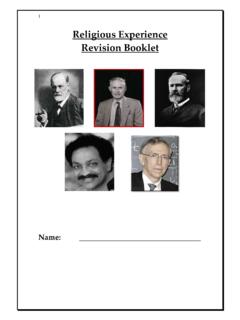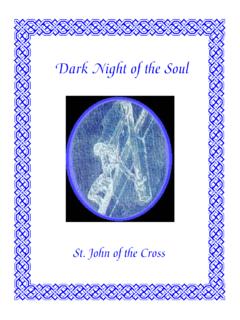Transcription of Plato’s theory of Love: Rationality as Passion - SOCIETY FOR …
1 Practical Philosophy November 2001 6 Plato s theory of Love: Rationality as Passion Lydia Amir 'I .. profess to understand nothing but matters of love.' Socrates in Plato s Symposium. Introduction One of the most influential traditions of love in the Western world is Platonism. Originating with Plato s writings on love (mainly the Symposium whose explicit subject is the nature of love and Phaedrus, but also the Republic and the Laws), the tradition flourished through Aristotle, Plotinus and the revival of neo-Platonism in the Renaissance.
2 But Plato s influence expanded beyond the tradition he started: the Courtly Love of the Middle-Ages, the Romanticism of the 19th century, important characteristics of religious love and even many Freudian ideas are rooted in his theory of love (de Rougemont, 1983). Today, interest in Plato s view of love is being renewed (Nussbaum, 2001, chapt. 6; Levy, 1979; Vlastos, 1973; Moravicsik, 1972). In the popular mind Platonism is associated with the concept of Platonic love, which is understood today as a non-sexual relationship between heterosexual friends.
3 As the concept of Platonic love is far from doing justice to Plato s complex theory of love and sex, French scholars found it helpful to distinguish between amour platonique (the concept of non-sexual love) and amour platonicien (love according to Plato) (Gould, 1963, p. 1). Two rectifications of the popular concept of Platonic love seem necessary in order to appreciate the relevance of Plato s theory of love to contemporary problems. The first is related to the non-sexual aspect of the loving relationship, for Plato s theory of love includes sex. The second is related to the heterosexual aspect of the loving relationship.
4 Indeed, Plato considers love between people solely as a homosexual phenomenon, whereas his discussion of sex includes both heterosexual and homosexual relationships. The sociological setting of Platonism explains it: in 5th century Athens, apart from some outstanding exceptions, like Pericles legendary love for Aspasia, men were married for reproductive ends, yet reserved the term love and the passionate activity of sexual love for homosexual relationships (Gonzalez-Reigosa, 1989; O Connor, 1991; Tannahil, 1989). Nevertheless, in my opinion, nothing in Plato s philosophy stands in the way of adapting it to modern times, when due to their education and to political changes, women earned the right to love and to be loved as equals to men.
5 When one dispels these misunderstandings related to the popular notion of Platonic love, one finds a great richness and depth in Plato s theory of love. In explaining why love is so important to us and yet why it fails us so often, Plato s view of love seems applicable to our time. It is common knowledge that a very high rate of divorce threatens our marriages. We expect a lot from the sexual Passion we call love, but usually end up disappointed when the romance goes away. Yet we keep getting married, thinking that we are going to be the ones that will beat the system.
6 If we fail, we change our partner and try again. We end up our love life as we began it, confused, afraid and as disappointed as we were hopeful. The malaise that characterises our love lives naturally finds its way to the philosophical consulting room. In this paper I shall attempt to show how Plato s view of love can be helpful both in dispelling our confusion about love and in proposing some solutions to our suffering. A comprehensive account of Plato s complex theory of love, an exhaustive presentation of the controversies involved in interpreting it or a thorough discussion of the problems it creates, are all beyond the scope of this paper.
7 What one may hope to do is to introduce the reader to some basic characteristics of Plato s view of love, and then to share some thoughts about its applicability to our contemporary view of the blessings and predicaments involved in what we call love. I shall therefore begin with Plato s definitions of love (sections 1 and 2), followed by a description of the path to successful love (section 3). Some difficulties in Plato s theory of love will be then explained, as well as their import on the applicability of Plato s view to philosophical counselling (section 4).
8 I shall conclude with some positive applications of Plato s conception of love to contemporary problems (section 5). Plato's theory of Love: Rationality as Passion Lydia Amir 7 1. Love as desire for the perpetual possession of the good The Symposium is a Platonic dialogue, which describes a symposium on the nature of love or eros. From the five speeches related there, the one delivered by the great playwright Aristophanes was perhaps the most popular and influential over the years, and the one most in accordance with people s romantic desires.
9 Yet, it is to Socrates, or more precisely to a priestess named Diotima, whom Socrates allegedly met in the past and who told him the secrets of love, that Plato gives the honour of explaining his own theory of love. Aristophanes had explained through a comical and colourful myth that love is our search for our alter ago, that part of us that will make us whole again. Love is a remedy for an ancient wound inflicted on us by the gods, who divided us in two as a punishment for our arrogance. Since those primordial times, each of us is only half of himself or herself, searching relentlessly for completion.
10 When Socrates turn to speak comes, he refers to Aristophanes theory , but adds something that changes everything: we don t yearn for the half or the whole unless it is good. By this he means that the motive force in love is a yearning for goodness, not just completion. From this he concludes that love is always directed towards what is good, indeed that goodness itself is the only object of love. When we love something, we are really seeking to possess the goodness which is in it. Not temporarily of course, but permanently. And from there Plato gives his first definition of love: Love is desire for the perpetual possession of the good.









